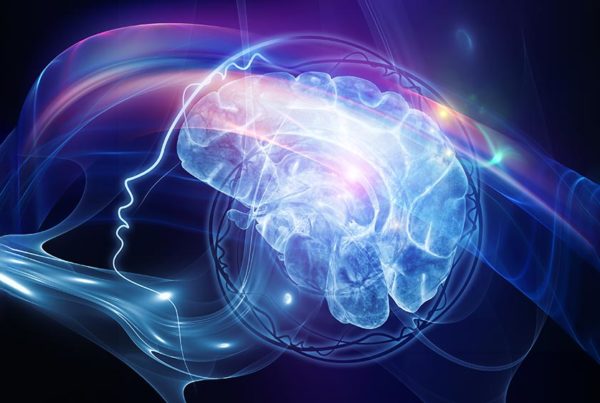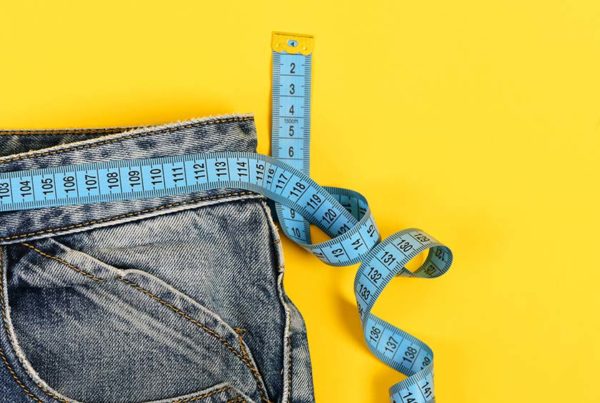The idea of injecting oneself with a needle is something many people shun, or even fear. “I’ll do anything to avoid that,” one patient told me emphatically, many years ago. Yet, he could not—would not—change eating habits in a way that would prevent his pancreas from burning out. Only a few months later he was injecting insulin everyday.
A diagnosis of diabetes is a hard pill to swallow. While it’s a preventable disease, many succumb to using the needle despite insulin’s side effects, which are often devastating. Why? Most won’t change their diet—nor do they get help from healthcare professionals, the media or any other influential source despite the solid science.
A surprising number of people are at risk for becoming diabetic and requiring insulin injections. This includes anyone on the spectrum of carbohydrate intolerance, which may be 75 percent or more of the world’s population. The sad fact is many people are unwilling to eat in a way that can prevent them from dropping into a diagnosis of diabetes.
Of course, I’m referring to type 2 diabetes. This form is preventable—something that can be accomplished by reducing carbohydrate foods, including the elimination of moderate and high glycemic foods, especially refined sugars and products made from flour. (At least modest amounts of physical activity are important too.)
But even in those diagnosed with type 2 diabetes, the pancreas still produces some insulin. It may even be enough to avoid medication—but only if the diet is truly healthy and one is physically active.
The so-called acquired form of diabetes, type 1, is very different. It appears as an autoimmune disease in childhood or in young adults. These cases are about 5 percent of all diabetics.
Yet both conditions are rapidly increasing worldwide. While considered separate diseases, they share an important similarity—in many cases patients use daily insulin injections to keep blood sugar stable. (Various oral medications may be used depending on the individual.)
My experience with diabetes began before entering private practice. I was diagnosed in the early 1970s. Fortunately, I knew enough about nutrition to immediately make the appropriate changes, which included better eating and physical activity. I am no longer considered diabetic, but could easily fall into that state simply by eating a typical American diet filled with refined carbohydrates—something I strictly avoid.
The Centers for Disease Control and Prevention (CDC) stays that, “Type 2 diabetes can be prevented through healthy food choices, physical activity, and weight loss. It can be controlled with these same activities.”
In the coming years, the CDC estimates that a third of Americans will be diabetic. Today, the condition cost the U.S. upwards of a quarter trillion-dollars a year.
Diabetes appears later on the spectrum of carbohydrate intolerance. Abnormalities often begin early in life. Clues that health is impaired can even appear at birth. So we are often given plenty of warnings about potential future problems. Below are some common signs and symptoms of carbohydrate intolerance in adults and children.
In adults:
Poor concentration or sleepiness after meals
Increased intestinal gas or bloating after meals
Frequently hungry
Increasing abdominal fat, upper body or facial fat
Frequently fatigued or low energy
Insomnia or sleep apnea
Waist size increasing with age
Fingers swollen/feeling “tight” after exercise
Personal or family history: diabetes, kidney or gall stones, gout, high blood pressure, high cholesterol/low HDL, high triglycerides, heart disease, stroke breast cancer
Low meat, fish, or egg intake
Low fat diet
Frequent cravings for sweets or caffeine
Polycystic ovary (ovarian cysts) for women
In children:
Low or high birth weight (5½ pounds or less, 9 pounds or more)
Taller than average for age
Increased weight or body fat
Parent or grandparent is pre- or type 2 diabetic
Sleep problems
Mother: increased stress during pregnancy
Increased aggression or anger
Attention-deficit hyperactive disorder (ADHD)
Overeating sweets or carbohydrates upsets
Physical activity low
Recurring craving for sweets
People don’t really die of diabetes—despite it being listed on death certificates—but rather from the harmful side effects of insulin. This includes heart disease, stroke and even other chronic, preventable conditions such as Alzheimer’s and cancer. So the game for all diabetics is to reduce reliance on insulin. Many are even able to eliminate it.
The same applies to pre-diabetics and others who are carbohydrate intolerant. These individuals produce too much insulin because of poor diet, and the goal is to reduce insulin production. The signs and symptoms listed above are examples of those directly related to the overproduction of insulin.
Long before diabetes is diagnosed, individuals on the carbohydrate intolerance spectrum, including pre-diabetes, produce too much insulin. The body can overproduce insulin for many years—as long as high glycemic carbohydrates are consumed. Included are cereal, bread, bagels, rice cakes, pasta, white potatoes, soda, sports drinks and bars, and, of course, sweets. (High protein diets can also product too much insulin production.) These foods trigger higher levels of insulin resulting in some or many signs and symptoms.
This well recognized problem used to be called hyperinsulinemia—excess insulin. But that name was too cumbersome and didn’t catch on. Today, the popular buzz is the Metabolic Syndrome. But unfortunately, it only names certain end result conditions within it, such as high body fat, high triglycerides and cholesterol (and low HDL), hypertension, and high blood sugar. It does not emphasize the cause—refined carbohydrates leading to excess insulin.
Why is there no longer talk of high insulin in those who are not (yet) diabetic? Or why don’t health professionals strongly encourage their diabetic patients to significantly reduce, minimize or attempt to eliminate their needs for insulin by eating well and exercise? Some do, but for most, it’s easier to just give a pill, so to speak.
So who is the real villain here? The food industry certainly wants you to eat more junk food, which worsens all the problems highlighted in this article (and many others). Blood sugar control is also a huge revenue stream for the pharmaceutical industry. Both spend billions in advertising to convince the masses of their great products.
Insulin is hailed as a wonder drug, yet too much can be more harmful than heroin. The same can be true for the body’s production of natural insulin.
Our insulin needs are lower than most think. The pancreas only makes more when carbohydrate foods are consumed, and in diabetics an increased dose of insulin is required. The problem can be seen even in a relatively healthy individual eating a typical American diet—insulin production may be twice that of a person consuming no refined carbohydrates. Reduce carbohydrate intake and insulin requirements can be greatly reduced.
Our muscles can actually obtain adequate amounts of sugar (glucose) without insulin. In fact, this occurs all the time during and immediately after exercise and physical activity, when insulin secretion is very low.
In addition, we are not dependant upon sugar for energy. We also can obtain significant amounts from fat, reducing reliance on sugar. Those who burn higher amounts of fat and less sugar are, overall, much healthier. But insulin impairs our ability to burn body fat for energy (the reason those exposed to higher insulin have elevated blood fats).
Of course, the most significant indication of one’s vulnerability for diabetes, like the full spectrum of carbohydrate intolerance, is consuming junk food. Most is made up of refined carbohydrates—the many forms of sugar and processed flour. Healthy eating does not include any of these items.
Whether one is already diabetic, of either type, a pre-diabetic, or has risk factors for carbohydrate intolerance producing too much insulin, addressing the cause of the problem is simple—eliminate all refined carbohydrates. For some, further reducing natural carbohydrates can lower insulin production, or one’s dose, even more.








